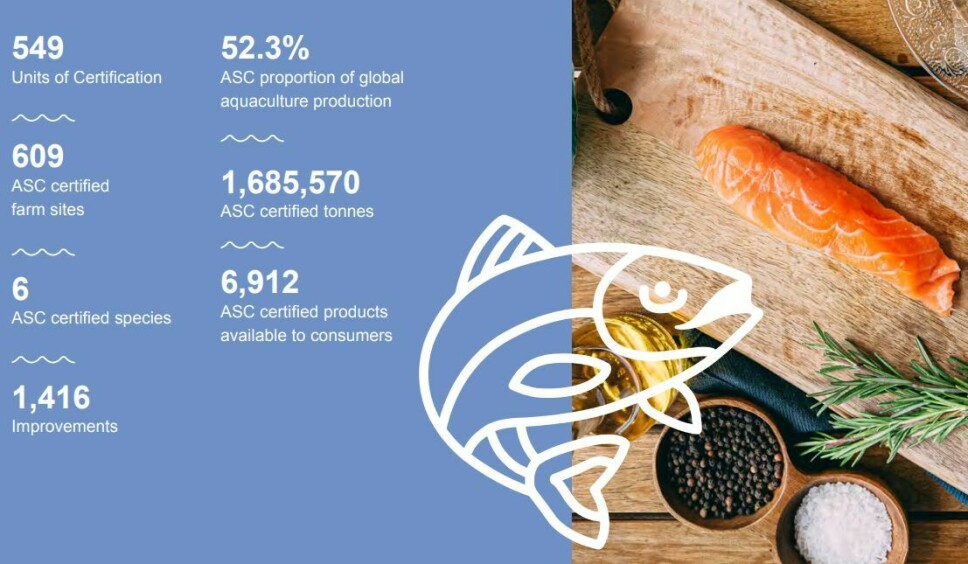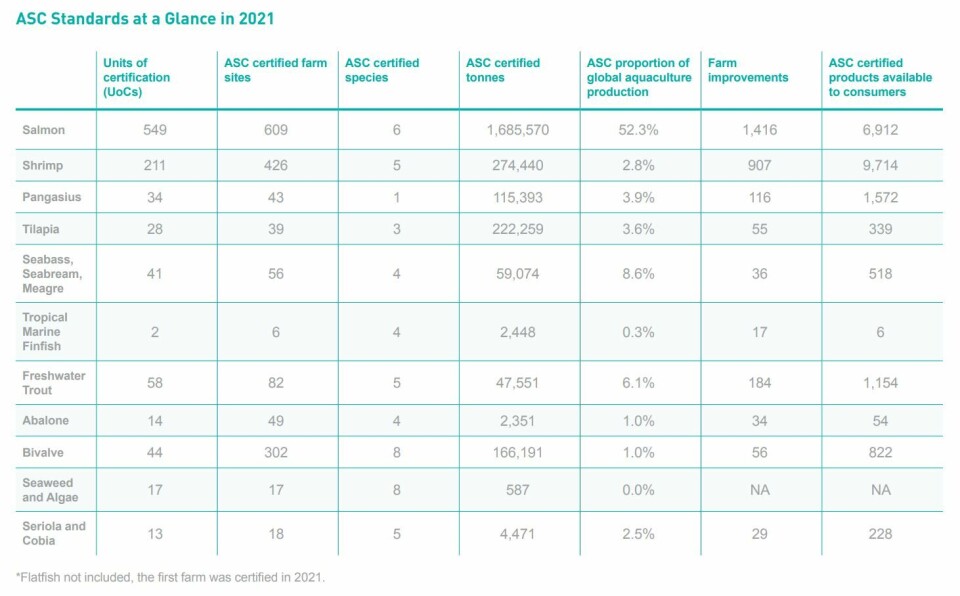
ASC-certified salmon accounted for 52% of market last year
Almost 1.7 million tonnes came from accredited farms
More than half of the salmon farmed globally last year was from sites accredited by the Aquaculture Stewardship Council (ASC), the certification body said today.
There were 609 ASC certified salmon farms in 2021, and they produced 1,685,570 tonnes of fish, 52.3% of the salmon produced by aquaculture. The ASC is the preferred certification body of the world's biggest salmon farmer, Mowi, which produced more than 450,000 gutted weight tonnes of salmon last year.
The ASC now offers 12 certification standards covering fish, shellfish, and seaweed and algae, and salmon farming has both the largest number of certified farms and the largest proportion of ASC-certified production.
Seabass and shrimp
Last year the standard covering farmed seabass, seabream, and meagre had the second-highest proportion of ASC-certified production (8.6% of global tonnage), while shrimp farming had the second-highest number of ASC-certified farms (426), producing 274,440 tonnes (2.8% of global production).
The statistics, which also show that ASC-certified salmon farmers made 1,416 farm improvements last year and that 6,912 ASC-certified salmon products were available to customers, are included in the ASC’s first annual report, released today.
Continued progress
“We are proud to publish the first Annual Report which celebrates not only the growing recognition for responsible aquaculture around the world, but also reaffirms our commitment towards continued progress,” ASC chief executive Chris Ninnes said.
“While 2021 challenged ASC’s innovation to continue promoting our programme and ASC labelled products we found new ways to reach our audiences, drive improvements to our systems and invest in our organisation.”
Jill Swasey, ASC’s head of impacts, said: “Through ASC’s first Annual Report, we hope to provide a clear picture of ASC’s growth and development over the years, as well as assess our impacts and contributions towards responsible aquaculture.”
























































